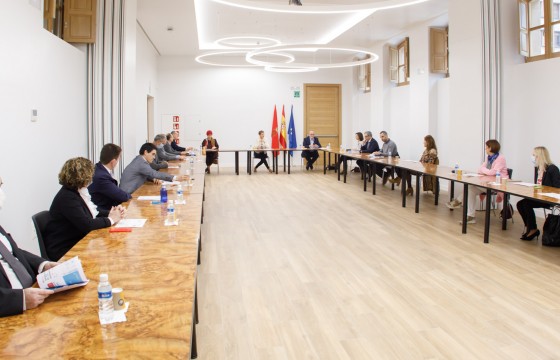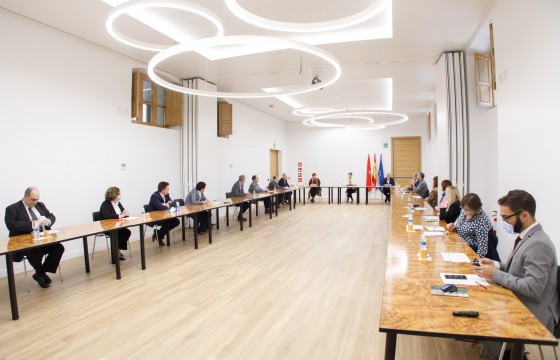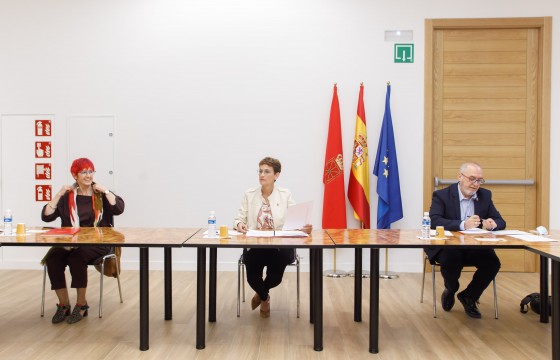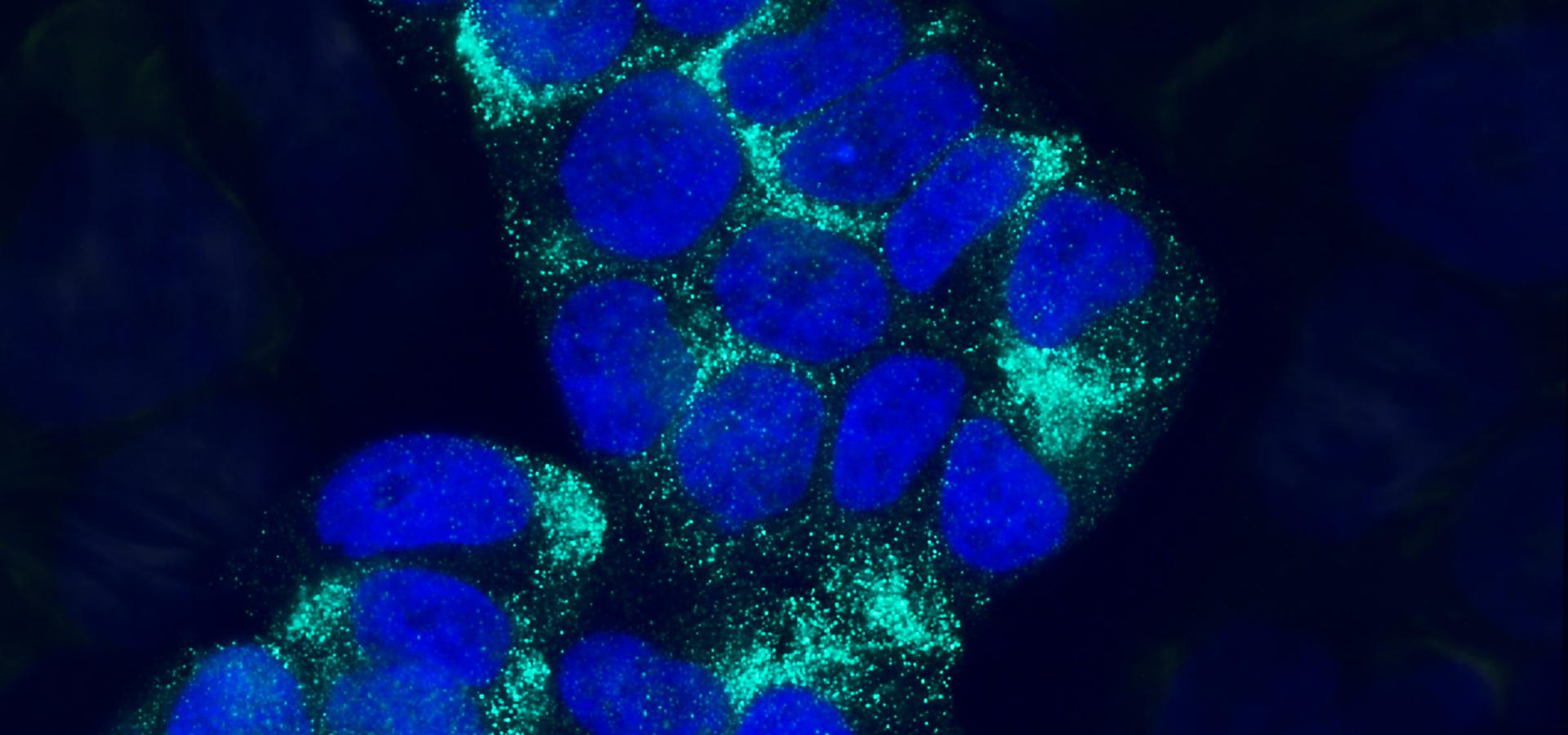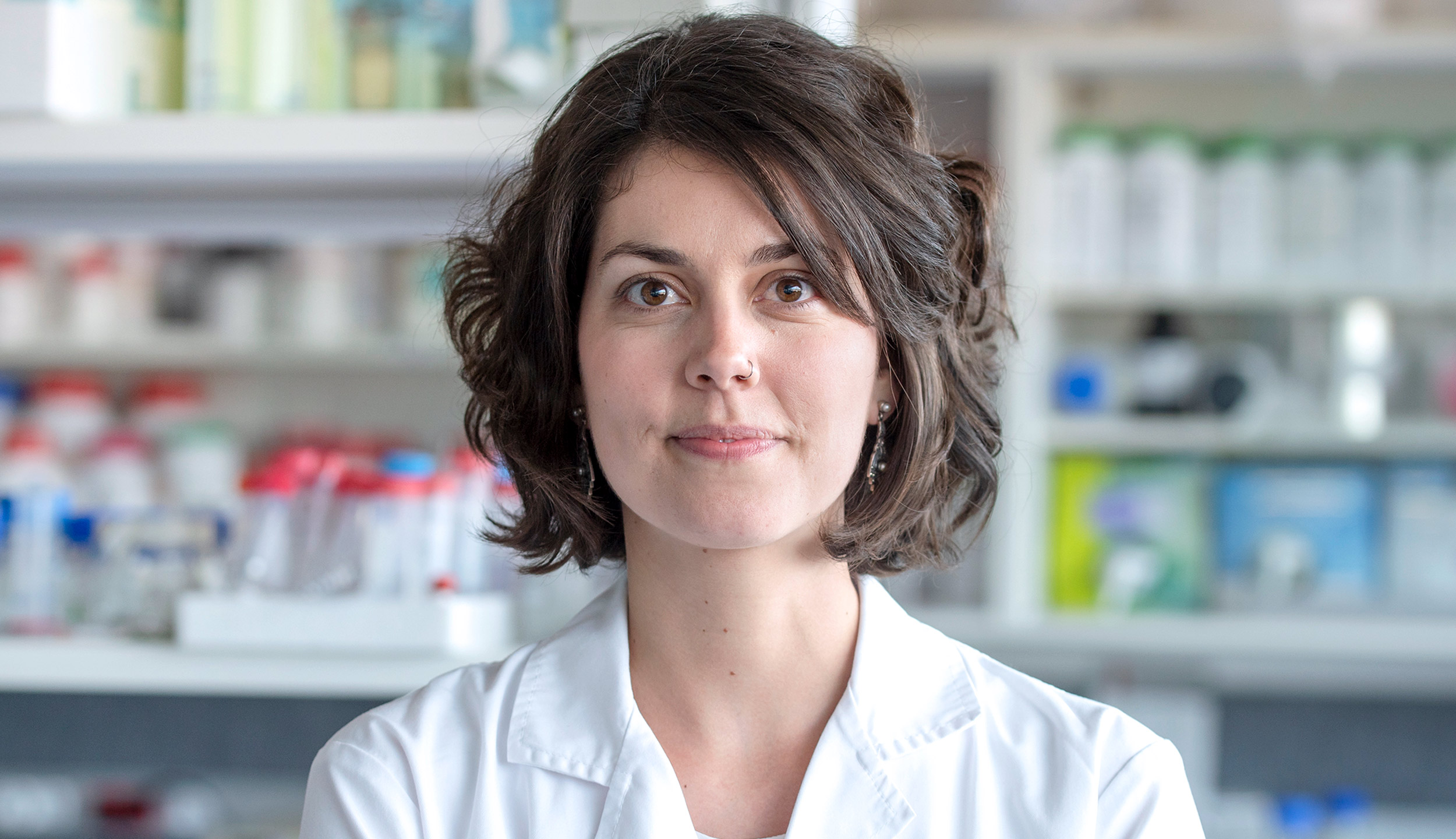Protein Crystallography and Structural Immunology
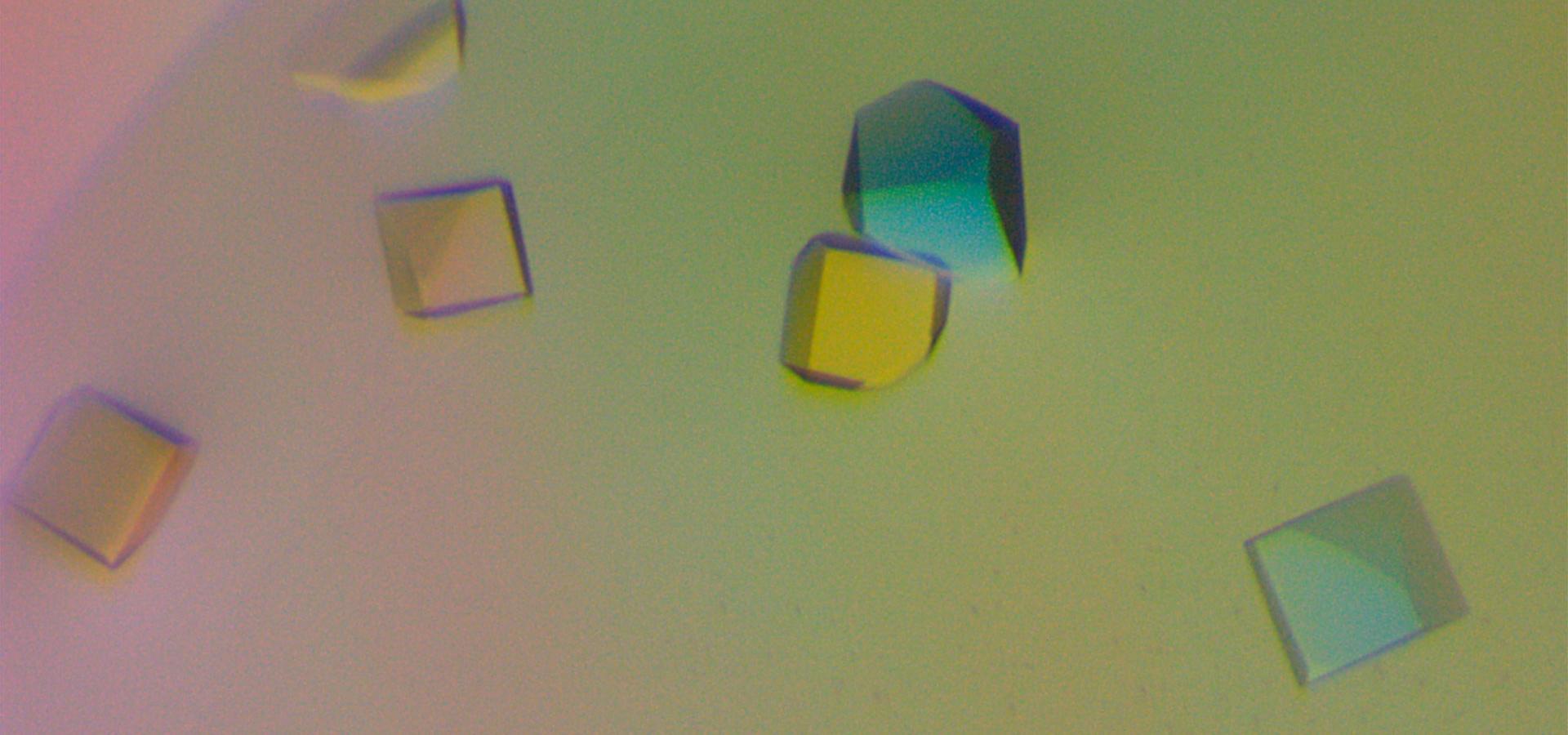
The Unit of Protein Crystallography and Structural Immunology investigates the molecular and structural bases that mediate the presentation and recognition of both foreign antigens, those found in pathogens or tumors, and self antigens (autoantigens), which are associated with autoimmune diseases.
To address these questions, researchers at this Unit combine, amongst other, disciplines of protein engineering and structural determination, such as X-ray crystallography.
These studies set out to understand novel mechanisms and pathways involved in antigen presentation, or resolve others that remain ill defined and are not fully understood with the current knowledge. These investigations are oriented to contribute to the development of novel and efficient medicines that treat and cure disease.
Research lines and areas of interest:
- In silico design of high-affinity peptides.
- Structure of TCR-pMHC and Fab-antigen complexes.
- Molecular mimicry.
- Structural bases of antigen recognition.
- Structural determination of components of the immune system.
- Pathogen-host interactions.
- Vaccine development.
- Molecular Docking
UPNA and Navarrabiomed lead COVID-19 project with €160,000 in funding from Banco Santander
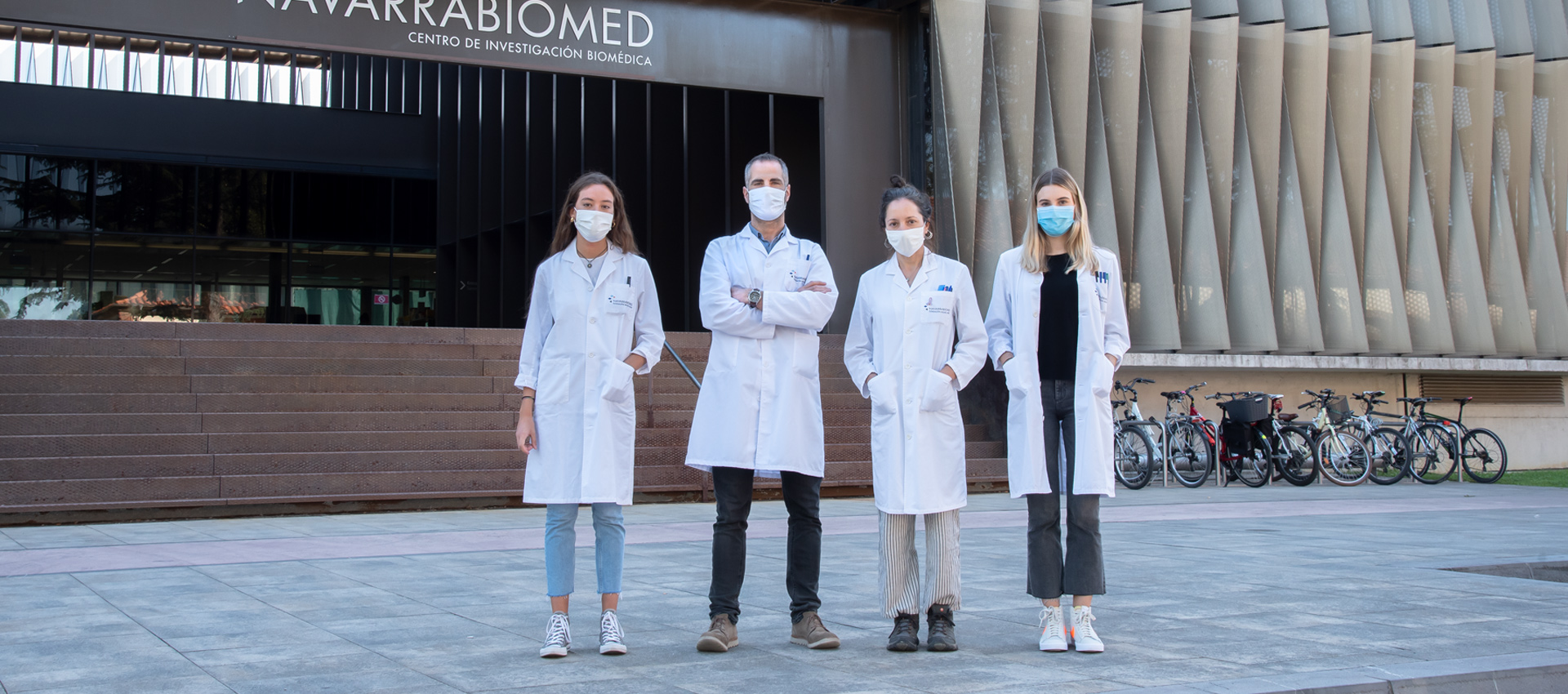
- Four Catalan institutions are also participating in this project to develop molecules with coronavirus-neutralizing properties
The Supera COVID-19 Fund launched by Banco Santander through Santander Universities, in collaboration with Crue Spanish Universities and the Spanish National Research Council (CSIC), has granted €160,000 in funding to a research project on COVID-19 designed by a consortium made up of Navarrabiomed researchers and four Catalan institutions coordinated by the Universidad Pública de Navarra (UPNA). This project seeks to develop molecules with SARS-CoV-2-neutralizing properties for the treatment of patients requiring hospitalization and clinical supervision due to the infection’s severity.
These molecules are based on peptides specific to the ACE2 receptor that can reduce or halt the ability of SARS-CoV-2 to cause infection. “These molecules reproduce the human receptor region the virus attaches to,” explained project leader Jacinto López Sagaseta, from the Protein Crystallography Unit at the Navarrabiomed Biomedical Research Center. “We are trying to create molecules from this region that have a greater capacity to bind to the viral particle, which would hinder the virus’s ability to attach to the natural receptor and thus slow down infection.” According to López, these molecules may “help chemists design drugs that can mitigate the process and speed of infection and thereby facilitate patients’ clinical recovery”.
In order to implement the 12-month project, a consortium was set up of researchers from different disciplines, including chemical synthesis, protein engineering, structural analysis and cell biology, as well as specialists in the conditions of biosafety level three (BSL3, for laboratories, on a scale of one to four), to test the potential of these molecules. Specifically, besides Navarrabiomed and the UPNA, four Barcelona research institutions are also participating in the project: IRB Barcelona (Institute for Research in Biomedicine), IQAC-CSIC (Institute for Advanced Chemistry of Catalonia), CIBER-BBN (Bioengineering, Biomaterials and Nanomedicine Subject Area of the CIBER Biomedical Research Center), and IRTA (Institute of Agrifood Research and Technology). Besides Jacinto López Sagaseta, other Navarrabiomed researchers taking part in this research project include Gilda Dichiara Rodríguez, Elena Erausquin Arrondo and Ane Ochoa Echevarría, who are members of the Protein Crystallography Unit.
The consortium members hope that “the availability of molecules with a strong inhibitory effect will significantly mitigate the socioeconomic impact of the pandemic due to the persistence of current and/or future SARS-CoV-2 outbreaks, as well as outbreaks of other potentially harmful coronaviruses with similar entry routes,” said López.
€8.5 million fund
The €8.5 million Supera COVID-19 Fund has been earmarked for projects of different organizations that are based on the fund’s three-pronged strategic approach against COVID-19: research on the virus and its prevention, research on its social impact, and strengthening universities’ technological capacity and reducing the digital divide. A total of 700 grant applications were submitted, of which 35 were selected and received funding to the tune of €5 million to carry out applied research against the virus. Nearly €1 million was also distributed to twelve projects on the social impact of the virus. Finally, €2.5 million will be allocated to supply young university students in unfavorable socioeconomic situations throughout Spain with nearly 5,000 computers and 15,000 Internet connectivity solutions and webcams.
President applauds Navarre talent and skills in biomedicine at meeting with research personnel fighting COVID-19
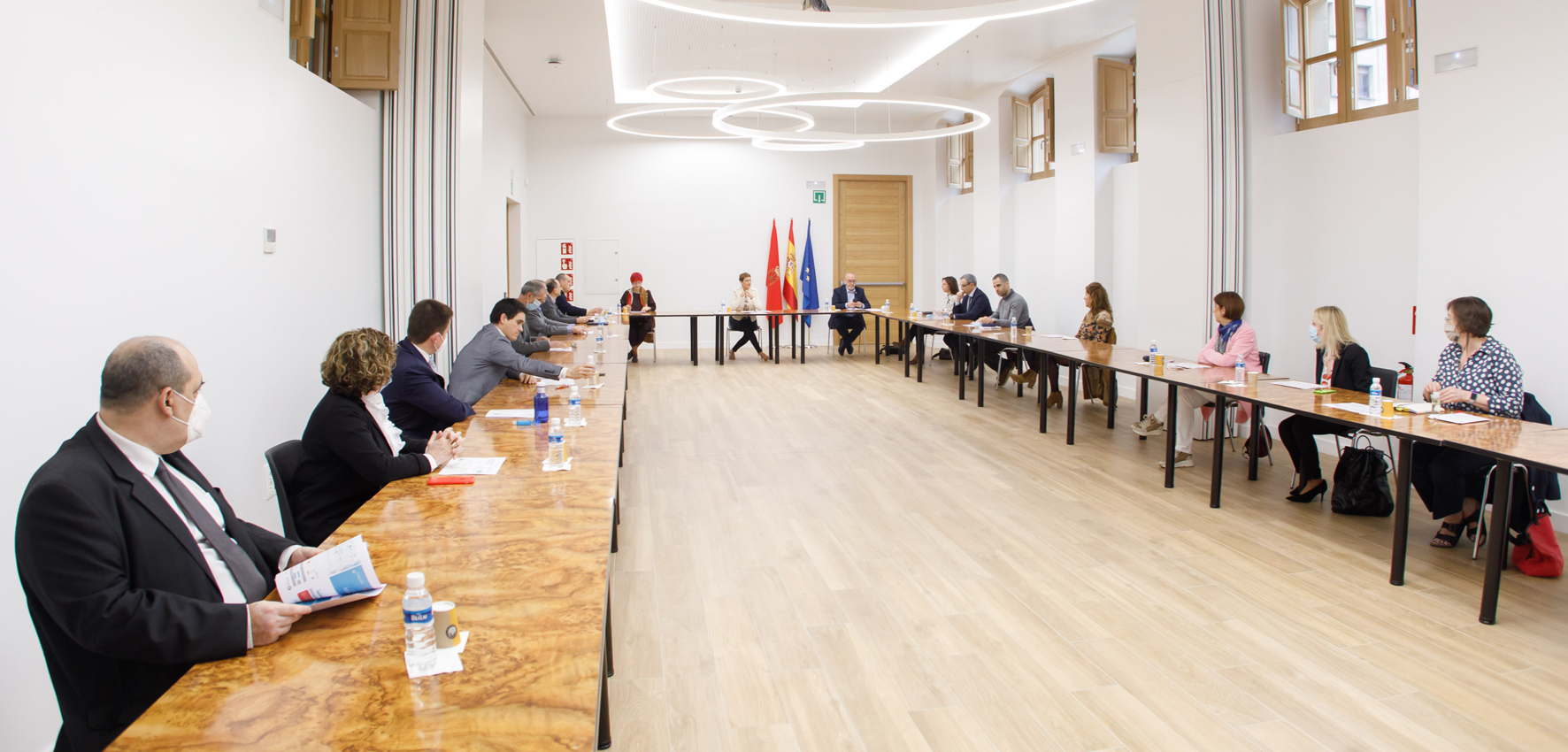
- The Government of Navarre provided €1.1 million in funding for eight research projects and has now added two more Navarre initiatives to the list of recipients of funding from the Carlos III Health Institute
María Chivite, the President of the Government of Navarre, recognized “the good work” being done at research centers and institutes in the Region of Navarre to find alternatives that help alleviate the effects of COVID-19. She spoke in the context of a meeting she attended this morning with ten researchers in charge of their own publicly funded studies on this disease, which has caused 515 deaths in Navarre and more than 27,000 in all of Spain.
The meeting was also attended by Santos Induráin, the Minister of Health, and Juan Cruz Cigudosa, the Minister of University, Innovation and Digital Transformation, and provided a firsthand opportunity to learn about the research purpose of the projects that have received grants from the Navarre COVI+D Fund. Created by the Government of Navarre to promote research on this topic, the fund paid out €1.1 million in May to eight projects that had received a favorable assessment from the Carlos III Health Institute. The Carlos III Health Institute has also provided direct funding of €232,000 for two other Navarre research projects.
Chivite took advantage of the forum to remind the participants of the Government of Navarre’s commitment to innovation and research “as a model of economic and social development,” not just through these grants, but also by means of the R&D&i Emergency Plan, presented last week, and the Reactivate Navarre Plan / Nafarroa Suspertu 2020-2023. The Government is also committed to improving technological infrastructure and promoting supra-regional cooperation. “We want Navarre to lead the way in biomedicine because we have the talent and skills to do just that. It’s one of the strategic areas we’re working on. We have to be able to transfer knowledge and research to favor industrial and technological development,” she said, before expressing her confidence that Navarre will become “a key stop on the R&D&i map.”
Chivite confirmed that the goal of the Government of Navarre is “to keep increasing investment and setting up strong pillars for the model of growth.” Navarre will thus be prepared for future challenges of the likes of COVID-19.
Chivite informed the researchers of the public support of their research work, though “people are aware of the pressure you’re under when you’re studying this coronavirus, because of the high expectations about finding a vaccine, treatments and other aspects that could alleviate the effects of a virus that has had a major impact on our society.” She asked for respect “for the time frames, rigor and meticulousness” of the researcher’s work, and also expressed hope that this work would promote “true and instructive information” that avoids fake news and disinformation in society as a whole.
Ten projects
In addition to President Chivite, the meeting was attended by Rosario Martínez, the Director General for Innovation. Also attending were the researchers from the ten projects that received public funding: Luis Martínez de Morentin, Fermín Mallor Giménez, Borja Sáez Ochoa, Natalia Ramírez Huerto, Jacinto López Sagaseta, Pablo Sarobe Ugarriza, Patricia Fanlo Mateo, David Escors Murugarren, Jesús Castilla Catalán and Leyre Ruete Ibarrola, who attended in representation of Beatriz Lacruz Escalada. They were joined by the heads of the different research centers where the projects are being carried out. This group included María Rosario Luquin, the Scientific Director of the Navarre Health Research Institute (IdiSNA), Claudio Fernández, the Director of the Lurederra Foundation, and Íñigo Lasa Uzcudun, the Director of Navarrabiomed.
The directors of the ten research projects presented their lines of research, which include the study of possible vaccines, the use of specific drugs, resource management, the development of preventive measures and products, and the analysis of incidence bearing in mind sociodemographic characteristics and other conditioning factors.
The Government of Navarre aims to promote Navarre innovation and national prominence through the COVI+D Fund grants. But the goal is also to attract scientific talent, given the fact that these grants include staff payroll expenses.
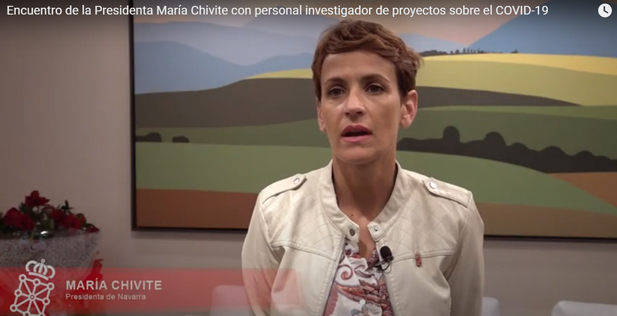
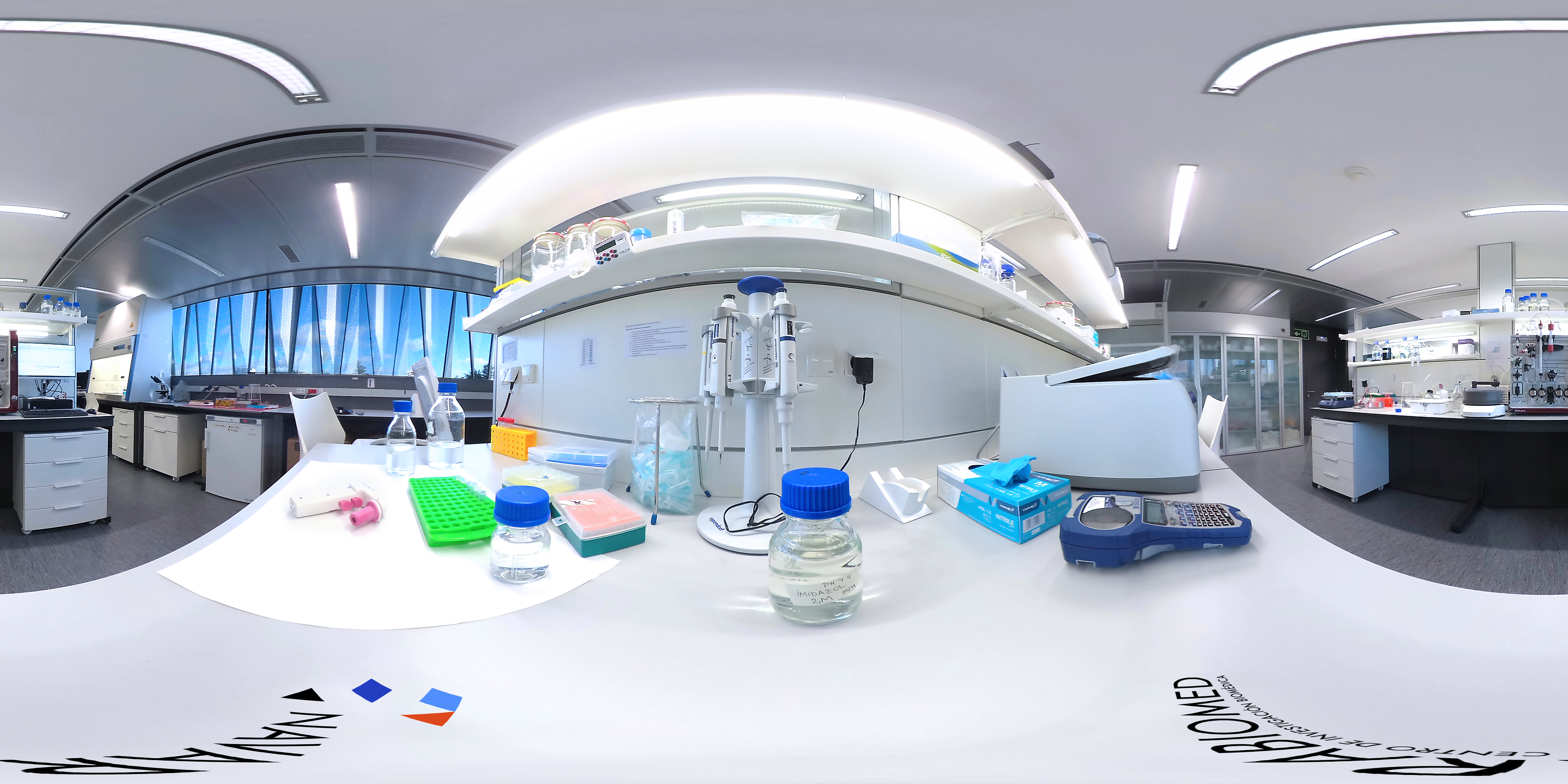
Navarrabiomed - Centro de investigación biomédica
Complejo Hospitalario de Navarra, edificio de investigación.
Calle Irunlarrea, 3. 31008 Pamplona, Navarra, España.

